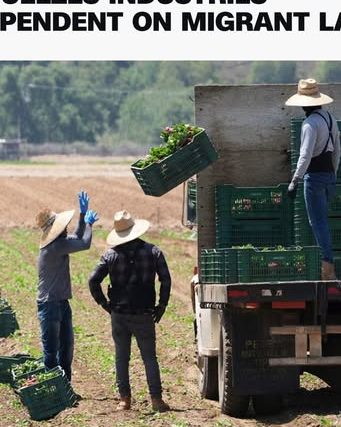As part of its strict immigration agenda, the Trump administration is facing pressure from industries that depend on migrant labor — especially in agriculture, construction, and food processing. While Trump has promoted mass deportations, industries warn that losing undocumented workers could lead to shortages, delays, and rising prices.

Privately, White House officials are exploring ways to ease the pressure, including potential legal pathways for long-term undocumented workers. Trump himself acknowledged the challenge, saying many of the workers have been on farms for years and are valued by employers.
Efforts to balance enforcement with economic concerns include streamlining visa programs, exploring farmer-backed sponsorship systems, and reducing paperwork. Still, any lasting solution may require congressional action.
Critics from within Trump’s base oppose any form of relief, calling it a betrayal of tough immigration promises. Meanwhile, industry groups warn that continued raids and deportations threaten productivity and may cause lasting damage to the economy.
The administration has sent mixed signals—one day pledging to protect farmers’ labor force, the next calling for record-breaking deportations. Immigration enforcement agencies have responded by targeting both undocumented workers and businesses across multiple sectors.
With millions of farmworkers lacking legal status, the outcome of this policy debate could shape the future of America’s labor supply—and the industries that depend on it.